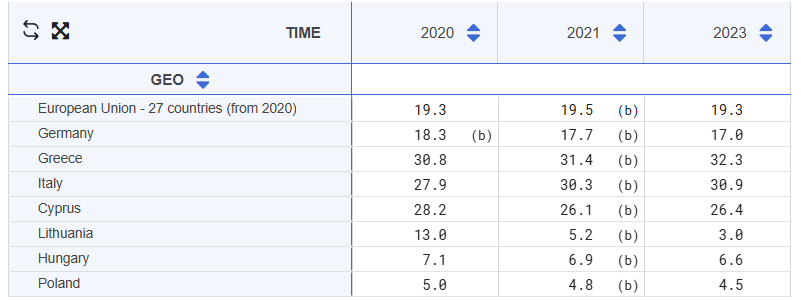
To mark International Workers’ Day on May 1, 2025, Eurostat has released new data highlighting how common weekend work has become across the European Union.
According to the report, in 2023, 22.3% of employed people in the EU said they usually worked on weekends. This shows that a significant portion of the workforce is working outside of traditional Monday-to-Friday hours, reflecting the changing nature of jobs and labor demands across different sectors.
The likelihood of weekend work depends heavily on the kind of work people do. Some occupations stand out for having especially high weekend work rates:
The report also revealed that weekend work varies depending on whether someone is employed or self-employed:
These figures suggest that business owners and freelancers often blur the lines between personal time and work, as they handle multiple responsibilities, from operations to client service.

The percentage of employees working on weekends varies widely, reflecting differences in industry structure, labor laws, and cultural norms.
Greece tops the list, with 32.3% of employees reporting regular weekend work. This is followed by Italy (30.9%) and Cyprus (26.4%). These countries have strong service-based and tourism-driven economies, which often require businesses to stay open on weekends, resulting in a higher demand for weekend staff.
At the opposite end, countries like Lithuania (3.0%), Poland (4.5%), and Hungary (6.6%) report the lowest percentages of employees working weekends. This could be due to more restrictive labor regulations, a greater emphasis on work-life balance, or differing economic structures that do not require as many weekend operations.
Germany, meanwhile, sits closer to the EU average, with 17% of employees typically working weekends.

When looking at all employed persons, the numbers are even higher. Greece again leads with 41.3%, followed by Italy (35.2%) and Cyprus (26.8%). These figures highlight the added contribution of self-employed individuals to the overall rate of weekend work in these countries.
In contrast, Lithuania (3.9%), Hungary (7.0%) and Poland (8.5%) show a downward trend in weekend work over recent years, indicating a possible shift toward more standard work schedules or greater regulation.
Interestingly, the data also shows broader trends: countries with the highest weekend work rates have generally seen steady increases over time, while those with lower rates have often experienced a decline. For example, Germany, Finland, and Romania have shown a decrease in the share of both employees and self-employed individuals working weekends in recent years.
These insights are especially relevant as conversations about work-life balance, mental health, and employee well-being gain momentum. Regular weekend work can affect rest, family life, and social activities. These trends suggest that national labor dynamics, shaped by economic demands, worker protections, and industry-specific needs continue to influence how and when people work across the EU. As weekend work becomes more entrenched in some regions and declines in others, it raises important questions about fairness, flexibility, and the long-term sustainability of such work patterns.